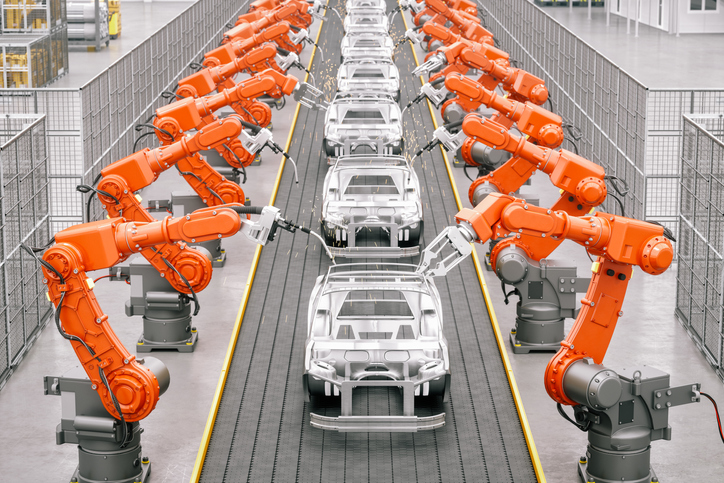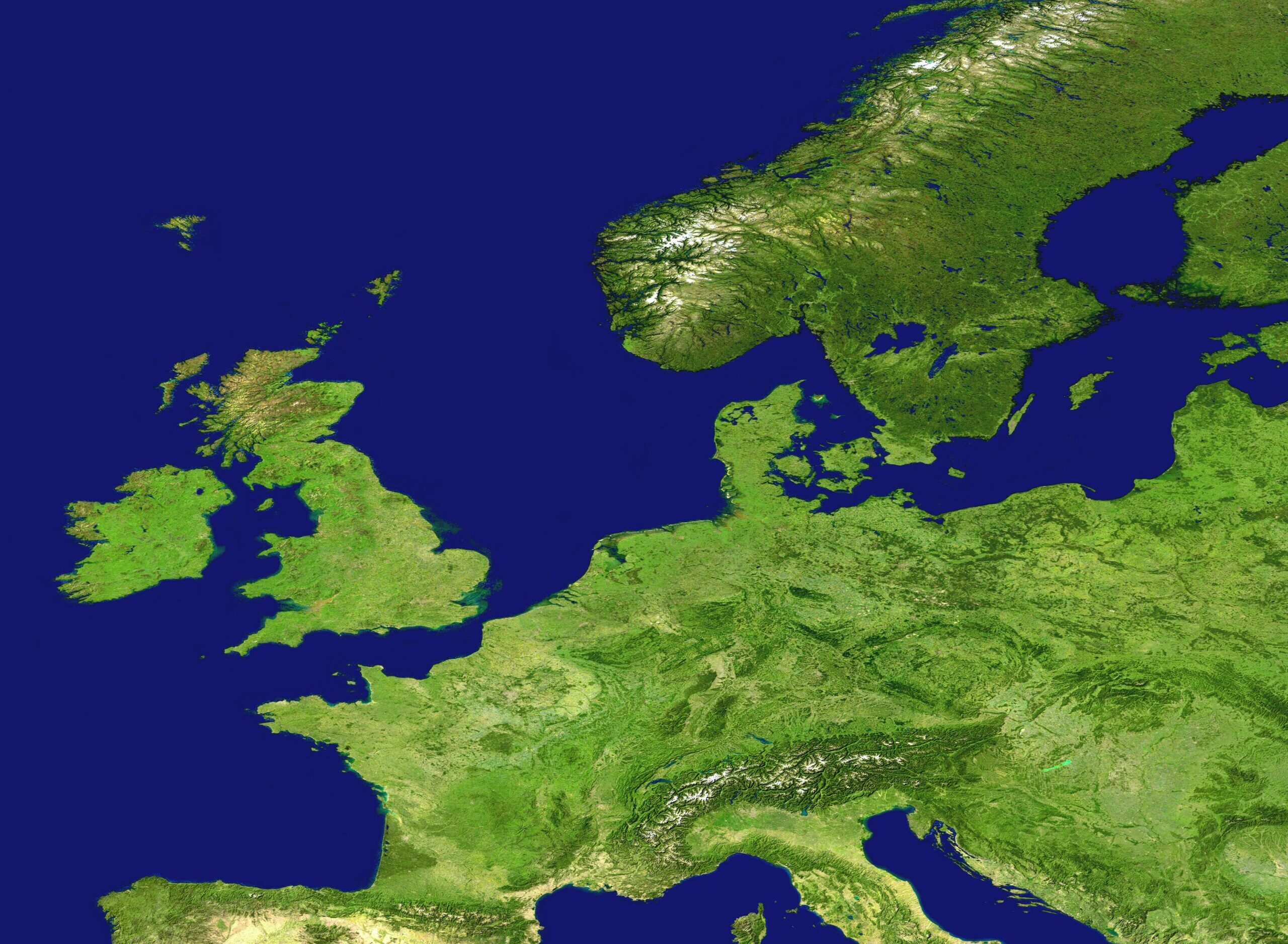Relocation of production to Europe: The rediscovery of the domestic market
In recent years, the relocation of production to Europe has undergone a remarkable transformation. More and more companies are returning from abroad, especially China, back to Germany and other European countries. This return not only offers an opportunity to shorten supply chains, but also to strengthen customer loyalty. In our blog we would like to tell you everything you need to know about the background, advantages and challenges of relocating production to Europe. Sign up for our newsletter to stay up to date.
The importance of relocating production to Europe
The relocation of production to Europe is becoming increasingly important. More and more companies are deciding to relocate their production from abroad back to Germany and other European countries. This trend can be attributed to various factors:
- On the one hand, economic aspects play a role. The transformation processes in industry have led to the costs of relocating production falling significantly.
- In addition, supply chains are also simplified, leading to more efficient production.
- Customers' increasing quality expectations as well as political developments such as the trade conflict between the USA and China have contributed to companies increasingly wanting to locate their production in Europe.
- Customers' changing quality awareness also plays an important role here.
Overall, the relocation of production to Europe and Eastern Europe many advantages and opens up new opportunities for the German economy and industry.
2. Background: why companies are moving their production back to Europe?
More and more companies are deciding to relocate their production from abroad back to Europe. There are different reasons for this:
Cost efficiency: although labor costs tend to be higher in Europe than in some other regions of the world, other factors such as efficiency improvements, automation and lower transportation costs can reduce or even offset the overall cost difference. This could particularly apply to high-value or technologically sophisticated products.
Quality control: by moving production back to Europe, companies can have better control over the quality of their products. This can be particularly important for industries where quality and reliability are key competitive factors, such as automotive or pharmaceuticals.
Logistics and supply chain management: production in Europe can lead to shorter delivery times and better flexibility in the supply chain, especially for companies that have a large part of their sales market in Europe. This can help improve responsiveness to customer needs and reduce risks associated with global supply chains.
Regulatory regulations and standards: Europe often has strict environmental and labor laws as well as high quality and safety standards. For some companies, producing in Europe can be a way to more easily comply with these regulations and standards or even use them as a competitive advantage by positioning themselves as sustainable and ethical producers.
Risk reduction: shifting production back to Europe can also help reduce the risk of political instability, trade conflicts or other external influences that could affect global supply chains.
Technological innovation and skilled workers: Europe has a well-educated workforce and is often at the forefront of technological innovation. Proximity to highly regarded research and development locations and the availability of highly skilled workers can be attractive to companies that rely on innovative manufacturing technologies.
3. China is becoming less attractive for offshoring
Times are changing and so are the benefits of relocating production. While a few years ago China was considered an attractive destination for offshoring, this has now changed. German industry is increasingly recognizing the advantages of relocating production to Europe. The reason lies not only in the shorter supply chains and the associated flexibility, but also in the changing quality awareness of customers. Political factors also play a role: the trade conflict between the USA and China has made it clear how vulnerable foreign production can be. Companies are therefore increasingly looking for solutions in their own country or at least in European countries such as Hungary or Germany. The transformation is underway and it is time to seize this opportunity and strengthen the domestic economy. Subscribe to our newsletter to stay up to date on further developments.


Trade conflict between USA and China
The trade conflict between the USA and China has led to increased relocation of production to Europe. More and more companies are recognizing the advantages of returning to home territory. The uncertainty in China and rising costs abroad have contributed to Germany and other European countries becoming more attractive again. German companies are using this opportunity to bring back production and benefit from shortened supply chains. Hungary in particular is proving to be a popular location for relocating production to Europe.
DThe transformation of the industry is in full swing, and German companies are right in the middle of it. Customers are increasingly appreciating the quality of goods produced in Europe and are therefore also supporting the local economy. The trade conflict between the USA and China therefore has a significant influence on companies' decisions to relocate production to Europe.
Zeitarbeit International s.r.o. - your outsourcing expert
Do you want to relocate a project, a service or an entire company to Europe? Then you need a right partner who can assess the opportunities and risks well and support you in outsourcing production processes.
We at Zeitarbeit International see ourselves as a full-service provider and accompany companies through the entire outsourcing process. We work closely with the foundation law firm, whose tax advisors take care of sales tax returns, annual financial statements and other questions. We are available to advise you on all legal matters.
Contact us and let our experts advise you.
Frequently asked Questions
German companies often relocate their production abroad for a variety of reasons. One of the main reasons is the search for cost savings. By relocating production to countries with lower labor and operating costs, companies can reduce their overall costs and thus become more competitive. In addition, outsourcing production facilities to countries with more favorable tax and regulatory environments can also provide tax advantages.
Another important reason for relocating production abroad is the proximity to new sales markets. By establishing production facilities in foreign markets, German companies can improve access to local customers while benefiting from lower transportation costs and shorter delivery times.
In addition, moving production abroad can bring strategic benefits by allowing companies to position themselves globally and benefit from the specific advantages of certain regions. This may include access to skilled labor, technological know-how or raw materials.
Many companies leave Germany for various reasons. A main reason is often the search for cost savings, as by moving production abroad, companies can achieve lower labor and operating costs. In addition, foreign markets often offer new sales opportunities, allowing companies to be closer to their customers. Strategic advantages such as access to qualified workers or raw materials also play a role. Finally, diversifying production locations can help reduce the risk of political or economic instability.
Many products are manufactured abroad for several reasons.
- Outsourcing production to countries with lower labor and operating costs allows for a reduction in manufacturing costs, which increases the competitiveness of products on the market.
- Relocating production to countries with specialized skills or technologies can improve product quality or enable innovative production methods.
- Manufacturing abroad often provides greater access to raw materials or other resources needed to produce certain products.
- By manufacturing abroad, companies can benefit from tax advantages, regulatory relief or trade agreements that are not available in their home countries.
Overall, manufacturing abroad allows companies to increase efficiency, reduce costs and position themselves globally to benefit from various advantages.
- Companies come back to Germany for various reasons. This includes:
- High quality of German workers.
- Good infrastructure in Germany. The country has a well-developed road network, modern means of communication and transport, and a reliable energy supply. This allows companies to work efficiently and bring their products to market quickly.
- Germany offers a stable political and economic environment. The German government supports companies with various funding programs and offers a legal framework that offers investment security.
- Access to the European market. As Europe's largest economy, Germany offers companies easy access to a broad customer base within the EU. This is particularly attractive for companies that want to distribute their products throughout Europe.
In summary, companies return to Germany because of its skilled workforce, good infrastructure, stable political and economic environment, and access to the European market. These factors make Germany an attractive location for international companies.


